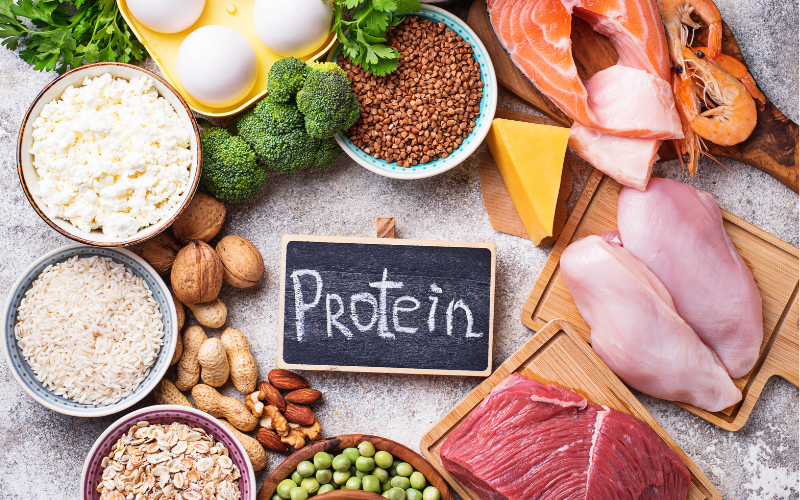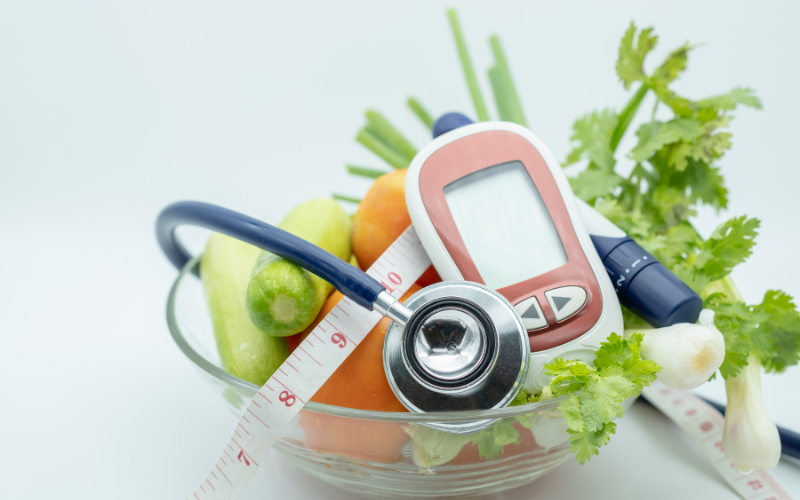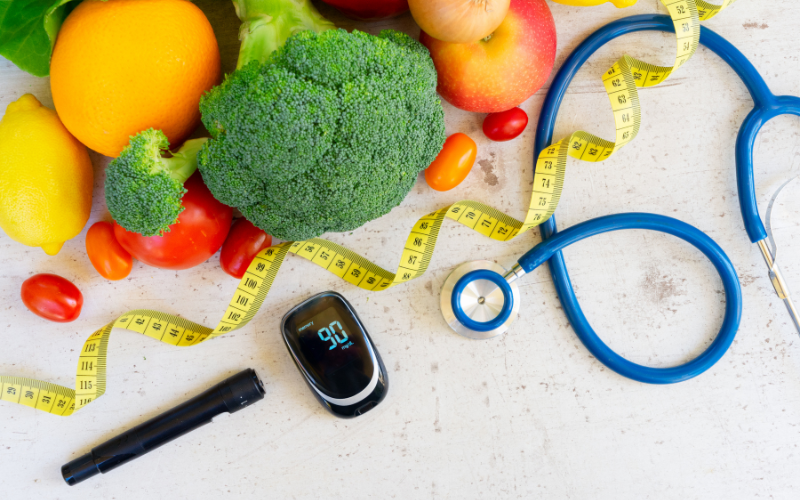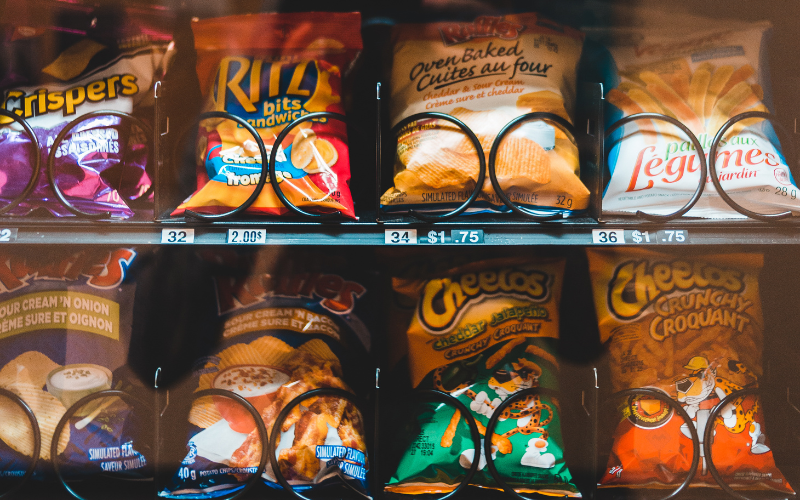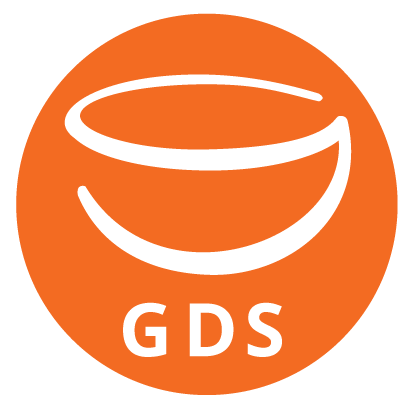Do you have a vitamin deficiency? Here are some common signs.

Have you ever wondered if your diet is providing you with all the vitamins and minerals you need to stay healthy? Do you suspect that you may be lacking in certain nutrients but not sure which ones? This article outlines some common vitamin deficiency symptoms.
Having a mild lack of some nutrients is actually quite common and our modern diets may be to blame. It’s true they’re not as high in essential vitamins and minerals as they once were, but why? The key factors responsible seem to be our farming methods, changes in our dietary preferences, increases in food processing, and greater dependence on lengthy food storage. This has all contributed to humans eating produce and animal products that are less nutrient rich, less natural and ultimately less nourishing to our bodies.
So the answer to the question, do you have a vitamin deficiency? It’s quite possibly yes. Even if you have a very healthy diet, it’s hard to get some of the nutrients you need in the optimal quantities. So, how do you tell if you’re vitamin deficient? Read on as we give you some clues.
Are you very sick? Or just a little bit sick, a lot of the time?
Firstly, you may not be well. If the body is chronically depleted of a nutrient for a long period of time, the likelihood is that you’ll end up sick, very sick. Scurvy and rickets are two examples of extreme vitamin deficiencies, namely Vitamin C deficiency and Vitamin D deficiency respectively. Thankfully they’re uncommon in Australia.
If you’re not suffering from a chronic illness, what you may recognise is repeated little illnesses or other niggly health issues. These could be a sign of mild to moderate nutritional insufficiency. Often it’s a warning that something is amiss and you should take a closer look at your diet. We outline some of the common ones below.
If you have concerns about your health and your nutrient status in general, please consult your doctor for professional and personalised advice.
Skin problems
Your skin is often a reflection of your overall health and what is happening on your insides.
Skin conditions such as dandruff, scaly patches, dryness and dermatitis have been linked to poor nutrition, with zinc and B vitamins being of particular importance. Good sources of zinc include meat, seafood, legumes, dairy and wholegrains. Foods to consume to boost your B vitamins are wholegrains, poultry, fish, meat, dairy, eggs, green vegetables and legumes.
If you find that your wound healing is slow, or you bruise easily, you may be lacking Vitamin C. Great sources are kiwi fruit, oranges, strawberries, capsicum, broccoli and tomato.
For more detailed information on skin healthy, refer to nutritionist Zoe Bingley-Pullin’s article: Eat your way to better skin. The best foods for glowing skin.
Muscles not behaving?
Are you experiencing muscle cramps or twitches? This could be a sign of calcium deficiency. Calcium is found in dairy, salmon, anchovies, sardines, dark leafy greens, broccoli and nuts.
Magnesium is another mineral to watch for if you have muscle cramps and tics as it helps maintain normal function. Foods high in magnesium are nuts and seeds, lentils, wholegrains, banana and avocado.
Drab hair
Is your hair thin, brittle or prone to splitting? You may need to boost your biotin (Vitamin B7), which can be found in egg yolks, meats, fish, dairy, nuts, seeks, broccoli, spinach and sweet potatoes.
If you’re under 50 years of age and concerned about hair loss, you could focus on boosting certain vitamins and minerals that can help slow down or prevent this. These can include iron, zinc, Vitamin B3 (niacin) and omega 3 and 6 fatty acids.
Eyes seeing double?
You’ve heard that rabbits eat carrots to help them see at night, right? Well, the reason for this is that carrots are full of beta-carotene which is a form of Vitamin A. And Vitamin A helps with night vision – not just in bunnies but in people too! So if you’re experiencing poor vision at night or little white growths on the eyes, then you may be deficient in this important vitamin.
Vitamin A toxicity is a risk with supplementation, so best to get your Vitamin A in the form of food. Good choices include carrots of course, as well as other yellow and orange coloured vegetables, dark leafy greens, eggs, fish, dairy and organ meats.
Mouth sores
Do you have mouth ulcers or broken skin at the side of your mouth? Both of these conditions can be annoying and painful too! They have been linked to deficiencies in both iron and certain B vitamins. Opt for high iron foods such as meat, fish, poultry, legumes, wholegrains, nuts, seeds and leafy greens. Good sources of B vitamins include many of the same foods as iron as well as dairy and starchy vegetables.
Bleeding gums probably warrants a trip to the dentist to check your brushing technique and overall oral health. Though a lack of Vitamin C could also be responsible. It’s interesting to note that only a small portion of the population is considered to be truly deficient in this vitamin, however, up to 30% of us may have lower than ideal levels, which can be enough to bring on symptoms. Eat plenty of fresh fruits and vegetables every day to reach the recommended levels of Vitamin C.
Other signs of deficiency
The above vitamin deficiency symptoms are just the tip of the iceberg for what can be slightly off kilter in your body if you’re not meeting your nutrient needs. There are too many possibilities to list, but something may not be quite right if you’re experiencing fatigue, recurring colds and flu, mind fog, constipation, trouble breathing or unusual food cravings. Please see your doctor if you have any concerns.
The best way to boost nutrients in your diet
The key to a nutrient-rich diet is to eat plenty of fresh and natural foods and limit your intake of the foods that strip your body of nutrients. Here’s a guideline below.
Foods to eat:
- Vegetables and fruit – these are your nutrient staples and should make up a large proportion of your plate at every meal. The more colourful the better, as bright and varied skin and flesh colours on veg and fruit indicate the presence of powerful phytonutrients that work synergistically in your body to enhance your health.
- Nuts and seeds – are packed with god fats and a bounty of nutrients.
- Protein – such as from animal foods (beef, chicken, fish, pork, dairy) or from legumes (beans, lentils, tofu, soy) supports repair and growth as well as being essential for a healthy metabolism. Note that organ meats are the most nutrient rich part of the animal - our grandparents used to eat them but we rarely do anymore.
- Wholegrains – offer a range of nutrients including protein, fibre, B vitamins, antioxidants, and trace minerals such as zinc, iron, magnesium and copper). Opt for grains that are as unprocessed as possible such as whole wheat, oats, brown rice, whole corn and quinoa.
Foods to limit or avoid:
- Processed foods – minimise your intake as these sap you of vitality.
- Salt/sugar/fatty foods – limit as they take up space on your plate without offering any nutrition.
- Alcohol and caffeine - deplete your nutrient levels so should be limited.
Other considerations:
- Sleep – unbelievably, good sleep promotes healthier food choices.
- Medication – be aware that some antibiotics or longer term meds can diminish your nutrient levels.
- Life stages – there are times in life that you may need a higher intake of nutrients to maintain good health, such as infancy, childhood, puberty, teenage years, if pregnant/lactating, and in elderly age.
- Cravings – are often the body’s way of crying out for more nutrients, not necessarily more food! Don’t give in to that chocolate or chip habit, but rather try to reach for fresh fruit, yoghurt or vege sticks. The more often you make the right choices, the more likely you can stop snacking altogether as your body will adjust to the healthy food you feed it.
- Food as medicine – opt for the right foods instead of pills, as food is what the body recognises and can optimise. You’ll have more success creating nutritional balance from natural food than from synthetic sources. Having said that, some practitioners will recommended supplements to correct imbalance initially, though usually not for the long term. Learn more about the benefits of healthy food over supplementation in this article, Live longer: Dietary supplements or food?
Thankfully, all the food on the Dietlicious menu is nutritionist approved, made from fresh wholefood ingredients with no additives or preservatives. So you can select anything from our range of individual meals or meal plans with peace of mind that you’re getting nutrient rich foods to help correct imbalances and boost your health and vitality.

